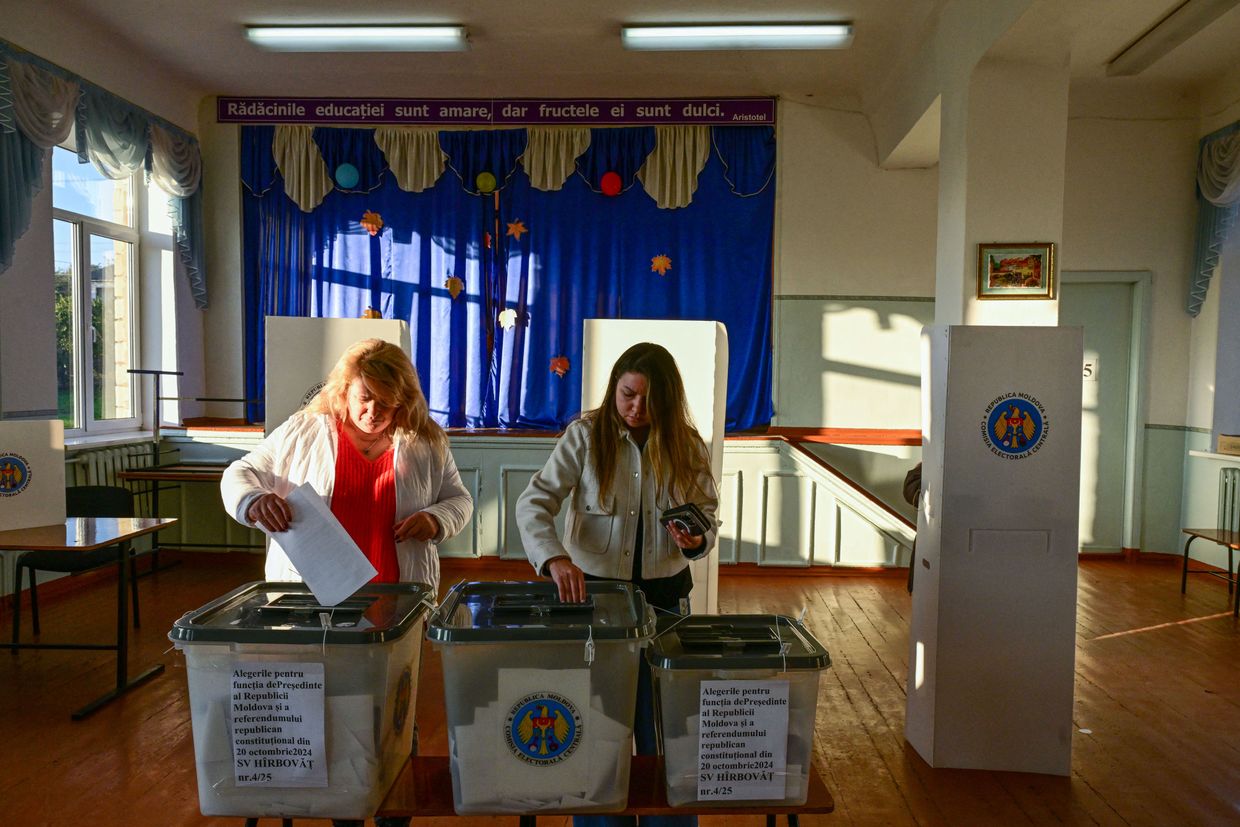Georgians head out to vote in parliamentary elections, tensions run high at some polling stations

Parliamentary elections in Georgia are underway on Oct. 26 which will determine if the Moscow-friendly Georgian Dream party will remain in power.
A large rally with tens of thousands of Georgians in support of the country's accession to the European Union was held in Tbilisi's Freedom Square on Oct. 20 ahead of the vote.
Georgia received EU candidate status alongside Ukraine in December 2023, but questions surrounding Georgia's candidacy continue to swirl as the ruling Georgian Dream party continues to rekindle relations with Russia.
Tensions are reportedly running high at some polling stations in the country. Nino Lomjaria, a lawyer and former ombudswoman, reported on Oct. 26 that an election observer was attacked while filming a ballot box being stuffed.
Giorgi Kalandarishvili, chairperson of Georgia's Central Election Commission, called the video "disturbing," and said that "if confirmed, the election administration will not allow such managed or manipulative incidents to undermine the many months of effort we have put into election day," Georgian public media reported.
Concerns about Georgia's democracy have reached a fever pitch after the ruling Georgian Dream party passed the foreign agents law, which requires organizations that receive foreign funding to be labeled as "foreign agents" and mirrors repressive Russian legislation used to crack down on Kremlin regime critics.
On Sept. 14, the de facto leader of the ruling Georgian Dream party, oligarch Bidzina Ivanishvili, as part of his party's larger trend of rapprochement with Russia declared that Georgia should "apologize" for Russia's 2008 war against the country.
Western officials have sanctioned in recent months Georgian officials who they deem as having a role in committing human rights abuses.
Moscow formally initiated processes cozying relations with Tbilisi on Oct. 10 as Russian President Vladimir Putin issued a presidential decree expanding visa-free entry for Georgian citizens who are working or studying in Russia.
Fears of Russian interference also ran high during the recent Moldovan election, with the vote for the EU referendum winning by only 11,000 votes despite polls showing clear support for closer ties to Europe.
Moldovan authorities revealed that they had evidence of other 130,000 people receiving bribes from Russian-linked forces to influence the referendum vote. The second round of voting, which will see if President Maia Sandu will hold onto the presidency, is set to take place on Nov. 3.












